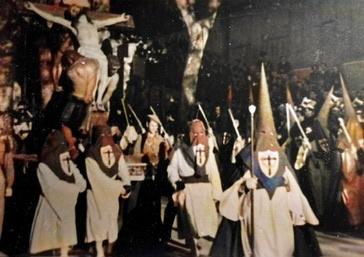In what manner is Mallorquí Catalan preserved through literature and storytelling on the island?
Similar Topics
mallorquí catalan
mallorquí literature
mallorquí storytelling
mallorcan identity
catalan dialect preservation
mallorquí oral tradition
mallorquí cultural events
mallorquí linguistic heritage
Mallorquí Catalan is actively preserved on the island of Mallorca through a vibrant tradition of literature and storytelling that serves both as a cultural repository and a means of contemporary expression. Local authors and poets continue to write in Mallorquí, emphasizing the distinct phonetic, lexical, and syntactic features that differentiate it from standard Catalan. This literary production includes a range of genres, from poetry and novels to plays and essays, often centering on themes deeply connected to Mallorcan identity, history, and everyday life. By producing works in Mallorquí, writers not only maintain its usage but also elevate its status as a legitimate and valuable literary language.
Storytelling remains another crucial method through which Mallorquí Catalan is passed down and cherished, especially in smaller communities and during cultural events. Traditional oral narratives, including folktales, legends, and anecdotes, are shared in the native dialect, reinforcing the unique linguistic identity of the island. Educational institutions and cultural organizations frequently incorporate these storytelling activities into their programs, encouraging younger generations to engage with their linguistic heritage. This oral tradition complements the written word by keeping the language alive in everyday communication and fostering a sense of pride among speakers.
Moreover, festivals and cultural celebrations on Mallorca often feature Mallorquí Catalan prominently, with theatrical performances, readings, and musical storytelling that highlight the language’s role in the island’s cultural fabric. Through these events, Mallorquí Catalan gains visibility and appreciation beyond academic circles, making it accessible to residents and visitors alike. The combined efforts of writers, educators, and community leaders ensure that Mallorquí Catalan remains not just a linguistic relic, but a living, breathing element of Mallorcan life sustained through the powerful mediums of literature and storytelling.
Storytelling remains another crucial method through which Mallorquí Catalan is passed down and cherished, especially in smaller communities and during cultural events. Traditional oral narratives, including folktales, legends, and anecdotes, are shared in the native dialect, reinforcing the unique linguistic identity of the island. Educational institutions and cultural organizations frequently incorporate these storytelling activities into their programs, encouraging younger generations to engage with their linguistic heritage. This oral tradition complements the written word by keeping the language alive in everyday communication and fostering a sense of pride among speakers.
Moreover, festivals and cultural celebrations on Mallorca often feature Mallorquí Catalan prominently, with theatrical performances, readings, and musical storytelling that highlight the language’s role in the island’s cultural fabric. Through these events, Mallorquí Catalan gains visibility and appreciation beyond academic circles, making it accessible to residents and visitors alike. The combined efforts of writers, educators, and community leaders ensure that Mallorquí Catalan remains not just a linguistic relic, but a living, breathing element of Mallorcan life sustained through the powerful mediums of literature and storytelling.
🧩 Related Questions
Related Question
Are there any areas in Mallorca where taking a taxi is more convenient than using public transportation?
Related Question
How does the town of Soller honor the legacy of Joan Mascaró i Fornés?
Related Question
How has the cultivation of olives shaped the landscape and agricultural tradition of Mallorca over time?
